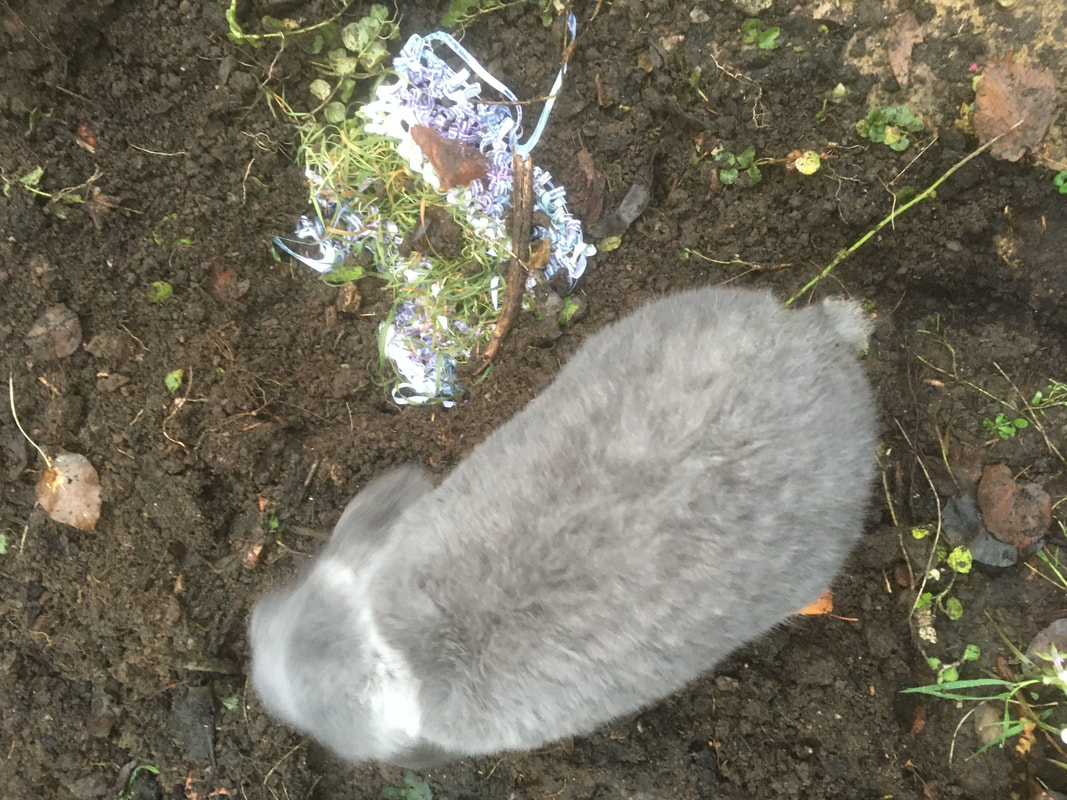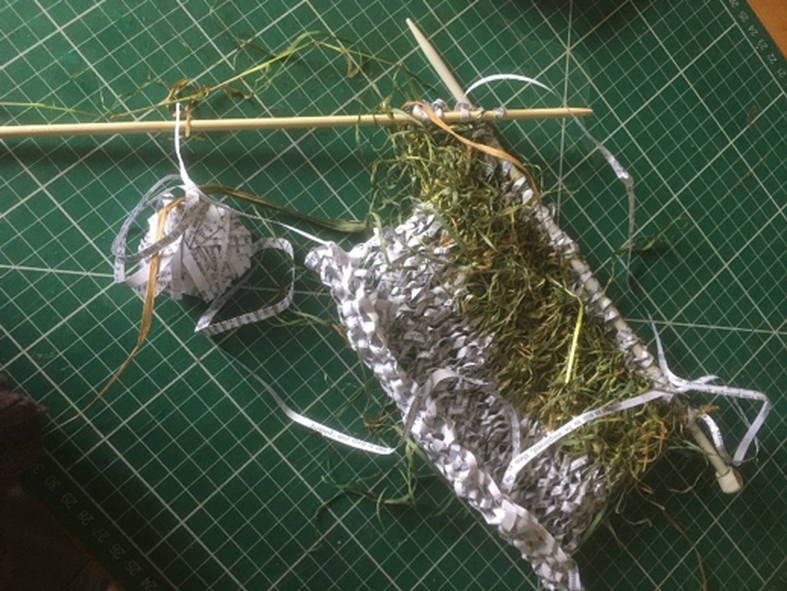|
Composting Hegel: a sympoietic knitting of humanist and posthumanist strands
Lin Charlston and David Charlston October 18 - December 4, 2021 Performance by Pip Woolf, Black Mountains, Wales: September 20, 2021 Performance at Street Road: November 13, 2021. Duration: until composted. Lin Charlston is an artist and independent researcher whose conceptual artist-books are represented in over 40 public collections including Tate Britain and the Environmental Library at Berkeley. At a time when anthropogenic environmental devastation has reached a global scale, Lin considers it imperative for artists to go beyond simply minimising the damage caused by art processes and production. Lin is interested in how ideas from posthumanism and feminist new-materialisms can motivate artists to forge new relationships with the more-than-human world, and how art can contribute to a radical shift away from human-centric values. Her doctoral research at Manchester School of Art, Towards a Sympoietic Art Practice with Plants (2019), developed a co-creative art practice with plants informed by posthumanist ethics. Read a review of Lin's artist-book Fragment by Fragment here. David Charlston is a freelance German-English translator, part-time lecturer at the University of Liverpool and co-editor of the IATIS online journal New Voices in Translation Studies. He completed his PhD in Translation Studies at the University of Manchester in 2012 and was Honorary Research Fellow at the Centre for Translation and Intercultural Studies from 2015 to 2020. David's research interests include the sociology of philosophy in translation with a special focus on the English translations of Hegel. He recently translated The Position of the German Language in the World by Professor Ulrich Ammon (2019) and published his research monograph Translation and Hegel’s Philosophy: A Transformative, Socio-narrative Approach to AV Miller’s Cold-War Retranslations (2020). See also: Miller’s Hegel in Transformance – a website associated with Translation and Hegel's Philosophy, Hegel Society of America, and Hegel Society of Great Britain. |
Staying with the trouble requires making odd kin; that is, we require each other in unexpected collaborations and combinations, in hot compost piles. We become-with each other or not at all. That kind of material semiotics is always situated, someplace and not noplace, entangled and worldly.
— Donna Haraway, Staying with the Trouble: Making Kin in the Chthulucene Composting Hegel is a performative artwork engaging a sympoietic practice, first enacted by Lin and David Charlston in Autumn 2020 and described in their paper Sympoietic Art Practice in Co-expressive Re-worlding with Hegel’s "Vegetal Subject", published in the November 2021 Journal of Posthumanism:
ABSTRACT "Sympoietic art practice", construed as co-creative making-together-with plants, contributes to posthumanist discourse by forming cross-species partnerships which re-configure exploitative relations with plants. The posthumanist commitment of sympoietic practice to live equitably with the more-than-human world are inherently opposed to the tradition of anthropocentrism widely associated with Hegel's idealization of reason and culture (Braidotti, 2013, Marder, 2013, Alaimo, 2016, Haraway, 2016). But when Hegelian philosophy comingles with the radically different assumptions of sympoietic art practice in this exploratory paper, a co-expressive "worlding with plants" emerges. A transformative re-reading of Hegel’s Philosophy of Nature reveals that the English translators have smoothed away the vibrant concept of a "vegetal subject" explicitly used by Hegel in the original German. The resulting interpretive fissure makes space for a creative scrutiny of human exceptionalism, humanist and posthumanist conceptions of plant subjectivity and human-plant relations. Our transdisciplinary article concludes with a performative knitting together and composting of shreds of Hegelian text with vibrantly participative strands of living couch grass. Keywords Co-creativity; Hegel's Philosophy of Nature; Plant-human relations, Plant subjectivity; Sympoietic art practice. Performances of Composting HegelThe co-creativity, 'making-together-with', and collective art experiences at the heart of sympoietic practice generate shared knowledge, which deflects attention away from the authority of the sole artist and 'art objects’. Re-enactments of 'Composting Hegel' by different groups in different places become an extended artwork, continuing and re-generating this ecologically-sound, sympoietic sharing.
Composting Hegel 1
|

